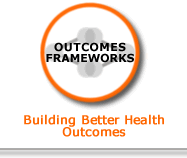 |
B . Evidence for parenting and the early years interventions (Prevention model) |
Summary There is highly processed and review-level evidence of effectiveness that parenting support and intervention in the early years can improve long-term health and social outcomes for children (at-risk). Attachment theory and effective interventions further demonstrate the importance of early years support for parents and children. There is highly processed evidence that interventions targeted at vulnerable groups can be effective in reducing substance misuse and improving other positive behavioural outcomes. Rationale There is highly processed evidence from NICE Public Health Guidance on social and emotional wellbeing in the early years (NICE PH40) that supporting the social, emotional and cognitive development of children can improve long-term outcomes. Although limitations in the evidence were noted, the authors concluded that there is potential for interventions with vulnerable preschool children to be cost effective and cost saving. NICE PH40 recommendations include[1]:
NHS Health Scotland’s Briefing on attachment [2], describes attachment as the bond from a child towards their parent or primary caregiver. The briefing cites John Bowlby’s theory of attachment (Attachment and Loss: Vol.1 Attachment, 1982) that defines attached as ‘the disposition of the child to seek proximity to and contact with a specific figure and to do so in certain situations, notably when he is frightened, tired or ill.’ The briefing outlines that there are links between an infant’s attachment style and their later social and emotional outcomes. Secure attachment in infancy is associated with positive outcomes including self-esteem, self-confidence, emotional regulation, resilience and more harmonious relationships in childhood and early adulthood. While attachment style may be a risk or protective factor, this association is not deterministic. Other factors, for example,social support or life stress, are likely to mediate this influence (from Sroufe 2006, Prior and Glaser, 2006 cited in ibid). The briefing details evidence on effective strategies for promoting secure attachment in young children:
From an NHS Health Scotland overview of the effectiveness of interventions to support parents, their infants and children in the early years, there is review-level evidence that intensive structured support to vulnerable mothers during the first 18 months of a child’s life, delivered by specialist nurses, is effective and cost-effective, in improving social and emotional development of vulnerable children. [3] There is limited highly processed evidence from NICE public health guidance 4: Community-based interventions to reduce substance misuse among vulnerable and disadvantaged children and young people. A good deal of the evidence reviewed was insufficient or inconsistent in its findings to enable firm conclusions in relation to the effectiveness of programmes in preventing drug use among vulnerable and disadvantaged young people. However:
Parenting interventions, in combination with drug treatment are effective in improving parenting skills and reducing parental drug use in families with drug use problems. However, evidence suggests that home visitation makes no difference on a number of child and parental outcomes among families with substance using members. Among young substance users, there is strong evidence that family therapy following treatment is effective in reducing substance use and improving social behaviours. Skills training for parents is effective in reducing cannabis use among young substance users and in improving parental coping. Among young people with behavioural and aggressive problems, multi- component parent and child programmes have been found to be effective on a range of child outcomes. For young offenders, multi-systemic therapy can be effective at reducing soft drug use and reducing reoffending. Recommendations in the guidance [4, 5] include:
There is review-level evidence from one systematic review, of the effectiveness of parenting programmes with pre-teen and early adolescent children, notably in the transition from primary to secondary school, to reduce substance misuse in children. Parental engagement and commitment are important to the success of interventions and the focus should not solely be on the issue of substance use, rather on the whole family (relationships, social skills and personal responsibility). [6]
Scottish policy and practice note NHS Health Scotland’s (2014) Health Inequalities Policy Review for the Scottish Ministerial Task Force on Health Inequalities [7] cites a Scottish Evaluation of Family Nurse Partnerships [8] demonstrating initial learning of the potential to strengthen a range of personal assets, practical skills of young mothers as well as supporting emotional health and wellbeing.
|
References:
|

